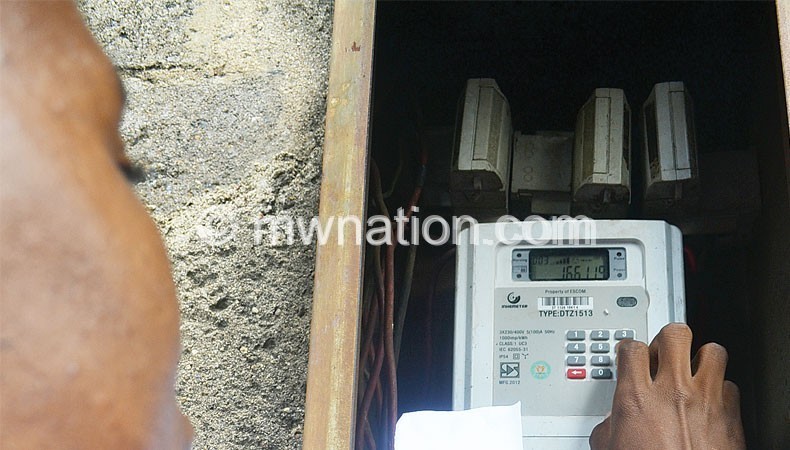Escom’s 68% tariff proposal faulted
Consumers and an industry expert have protested Escom’s proposal to increase electricity tariff by 68 percent in the next four years under the third base tariff arrangement.
The Electricity Supply Corporation of Malawi (Escom) application to Malawi Energy Regulatory Authority (Mera) comes when the four-year second base tariff, which ran from 2014 to 2018, is expected to come to an end on June 30.

Consumers Association of Malawi (Cama) executive director John Kapito, in an interview yesterday, protested the tariff proposal, arguing it is not justifiable considering the current state of affairs in the energy sector.
“In the past four years, they had another tariff hike, but we have not been able to see any improvements in their services. Now they want another hike? We find this unjustifiable to the consumers as there is no due diligence on the part of Escom. So, we will fight this,” he said.
Energy expert Grain Malunga, who is also former minister of Natural Resources, Energy and Mining, argued that while increasing the cost of electricity would make business sense, this could as well impact the economic gains made so far.
He said: “We know Escom would want to cover the cost of electricity generation which has increased due to the use of the diesel generators which are costing about K191 per kilowatt per hour [kWh]. Hence, the increase could put them in a much better position to finance their costs but at the expense of businesses and consumers.
“But unlike businesses which can be able to find means of cushioning the rising prices, consumers will have to deal with issues of affordability as well as rising prices of goods and services.”
If the proposal is granted, it means electricity end user tariffs will go up by 68 percent from K73 to K123 per kWh following the projected increase in purchase cost per unit from K29.92 to K65.35 per KWh, according to Escom.
In a tariff base proposal submitted to Mera on April 20 2018, Escom argues that the average cost of supplying a customer with electricity is K126 per kWh, according to the 2018 Cost of Service Study.
However, the power supplier says at K73 per kWh, the current tariff is on average 42 percent lower than the cost of providing electricity and cannot support the industry in terms of increasing investment and improving customer service.
But Mera chief executive officer Collins Magalasi, in an interview yesterday, said at the moment, they would not be able to say whether the hike would be justifiable or not as they are now looking at the application and will be engaging stakeholders on their views before it makes its final decision.
“This is a long process and what Escom has done is just to submit a proposal which can either be rejected, accepted or amended by the public,” he said.





